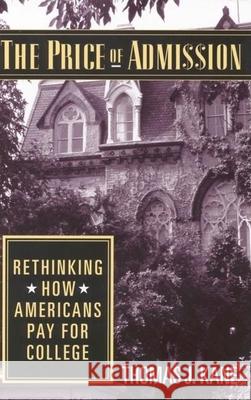The Price of Admission: Rethinking How Americans Pay for College » książka
The Price of Admission: Rethinking How Americans Pay for College
ISBN-13: 9780815750130 / Angielski / Miękka / 1999 / 180 str.
An overview of the many indirect ways in which Americans pay for college - as taxpayers, students and parents - and description of the sometimes perverse ways in which the state and federal financial aid policies interact. Thomas J. Kane evaluates alternative explanations for the rise in public and private college costs, weighing the role of federal financial aid policy, higher input costs, and competitive pressures on individual colleges. He analyzes how far we have come in ensuring access to all. Evidence suggests that large differences in college enrolment remain between high and low income students, even those with similar test scores and attending the same high schools. Kane promotes a package of reforms intended to squeeze more social bang from the many public bucks devoted to higher education. For example, he advocates front-loading the Pell grant programme, limiting eligibility to those in their first two years of college, and providing a larger share of federal subsidies by assessing student resources after college rather than evaluating a single year of parents income and assets before college.











